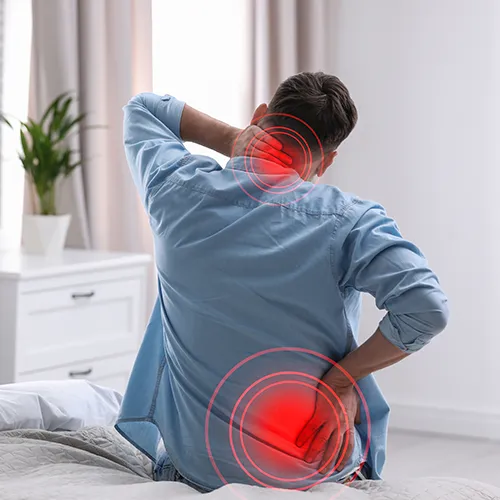Treatments, Chiropractic, Health Atlast Upper West LA, Therapeutic Massage
Tips to Manage Your Stress
Stress is an unavoidable part of life, but when it becomes chronic, it can take a toll on your mental and physical health. From muscle tension to fatigue, stress affects your body in ways that may not always be obvious. We believe in a holistic approach to stress management, combining chiropractic care, massage therapy, and lifestyle recommendations to help you feel more balanced and resilient. Let's delve into the ways stress affects your body and uncover practical strategies to manage it effectively.
How Stress Affects Your Body
Stress is your body’s natural response to challenges, releasing hormones like cortisol and adrenaline. While helpful in short bursts, prolonged stress can lead to chronic muscle tension, particularly in the neck, shoulders, and back, causing persistent pain. Stress also impacts posture, often leading to hunching or jaw clenching, which strains the spine. Beyond physical discomfort, stress weakens the immune system, disrupts sleep, and affects digestion, leading to fatigue and digestive issues.
Chiropractic care offers a holistic solution by addressing the physical effects of stress. Spinal adjustments realign the spine, reducing tension and improving communication between the brain and body. By targeting tight muscles, chiropractic care releases stress-related tension and promotes relaxation. Additionally, improved nervous system function helps regulate the body’s response to stress, fostering a sense of balance. Complementary therapies like massage and acupuncture further enhance relaxation and provide a comprehensive approach to stress management.
Practical Tips to Manage Stress
In addition to chiropractic care, these simple lifestyle changes can help you manage stress and improve your overall well-being:
- Move Your Body
- Exercise is one of the most effective ways to reduce stress. Activities like walking, yoga, or swimming can boost your mood and relax your muscles.
- Practice Mindfulness
- Techniques like deep breathing, meditation, or journaling help you stay present and reduce anxiety.
- Try the 4-7-8 Breathing Technique: Inhale for 4 seconds, hold for 7 seconds, and exhale for 8 seconds to calm your mind.
- Create a Relaxing Environment
- Make your home or workspace more calming by decluttering, adding plants, or using essential oils like lavender or eucalyptus.
- Prioritize Sleep
- Aim for 7–9 hours of sleep per night. Create a bedtime routine to help your body wind down, such as reading or taking a warm bath.
- Maintain a Healthy Diet
- Fuel your body with nutrient-dense foods like leafy greens, fruits, and lean proteins. Avoid excessive caffeine or sugar, which can heighten feelings of stress.
- Stay Connected
- Spending time with loved ones or talking to a friend can provide emotional support and reduce feelings of isolation.
- Set Boundaries
- Learn to say no when your plate is too full, and prioritize time for yourself to recharge.
The Role of Massage Therapy in Stress Relief
Chiropractic care along with massage therapy maximizes stress relief. Massage therapy:
- Reduces muscle tension and improves circulation.
- Lowers cortisol levels and increases endorphins.
- Promotes relaxation and a sense of well-being.
Stress doesn’t have to control your life. With chiropractic care, massage therapy, and simple lifestyle changes, you can take control of your stress and feel more relaxed, balanced, and energized. We’re here to support you on your journey to better health and well-being.












